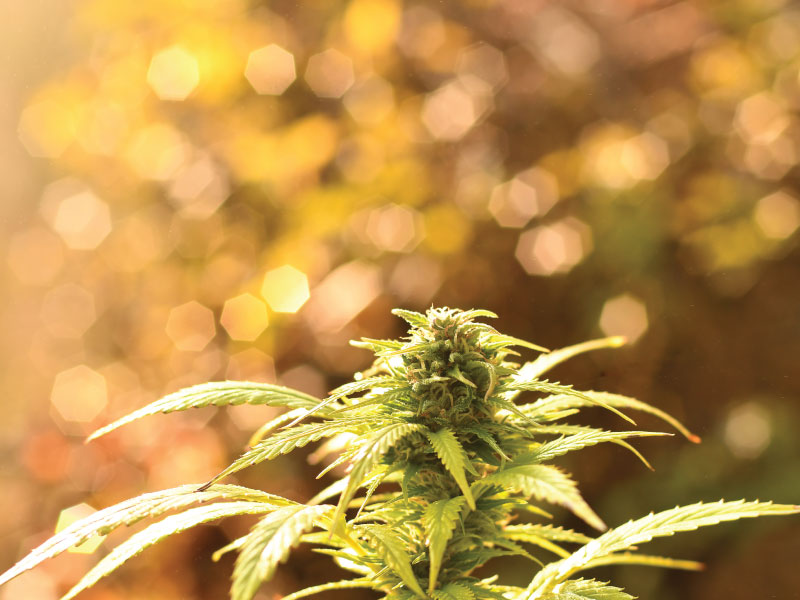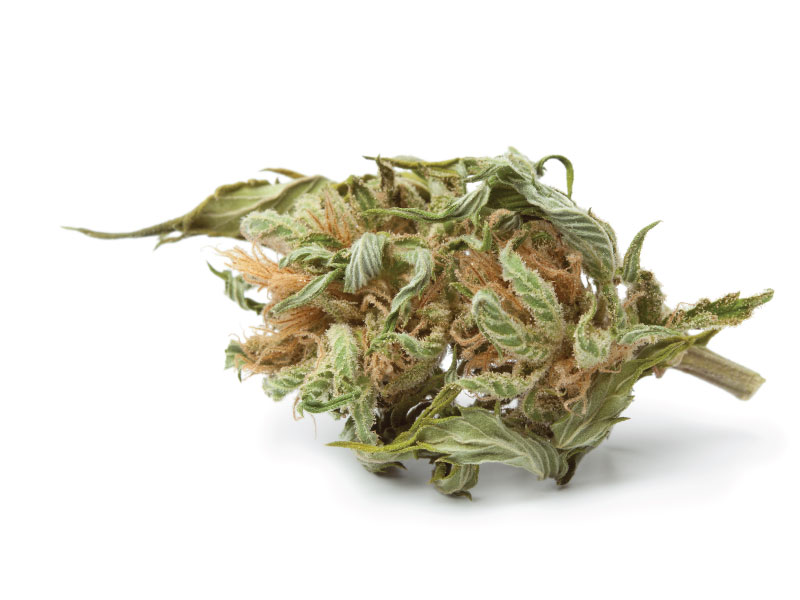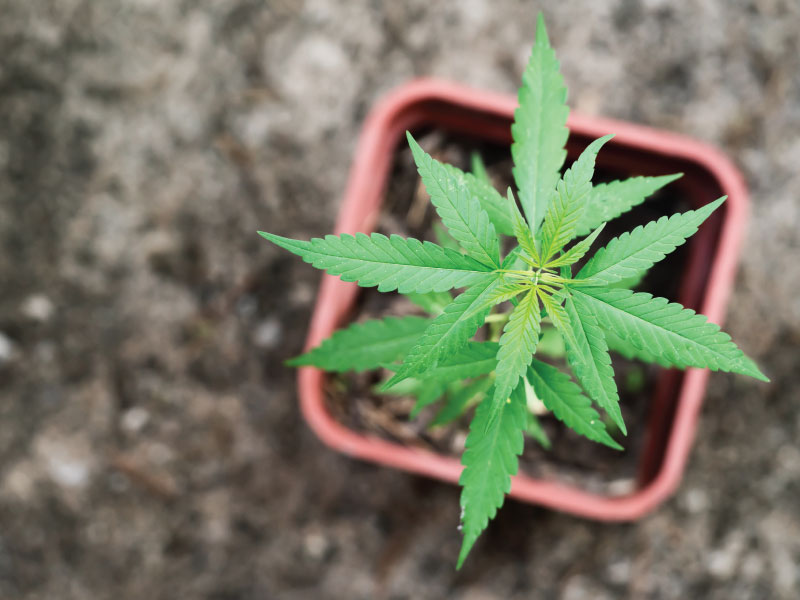ACT Resources Cannabis News – June 2019
Taxation and accounting often rely on current case law. This is especially critical in the cannabis industry, where legal expectations are often a moving target. In the past few months, there have been several key decisions that impact financial record-keeping, taxpayer obligation, and the calculation of cost of goods sold that have significant implications for cannabis businesses. In this legal round-up, we will review five major cases that every cannabis entrepreneur must know to avoid running afoul of federal expectations. Whether you operate a plant-touching or ancillary cannabis company, understanding of and compliance with the existing legal framework is essential to success.


Laurel Alterman and William Gibson vs. Commissioner of Internal Revenue, U.S. Tax Court, Docket No. 13666-14 filed June 13, 2018
This case revolves around the question of Cost of Goods Sold (COGS) and Section 280E of the federal tax code, which stipulates that any business deriving its revenue from a federally-illicit substance is not eligible to deduct COGS from its tax bill. Altermeds, a Colorado-based cannabis dispensary, sold both cannabis goods and non-cannabis goods. In 2010 and 2011, Altermeds relied on the cost of the non-cannabis goods it sold to file for a deduction, which was ultimately reduced by the Internal Revenue Service (IRS) following an audit. The reduction of COGS resulted in a tax deficiency of nearly $400,000 for the dispensary across those two years, leading Altermeds to file suit.
Ultimately, the court ruled in favor of the IRS, stating that the sale of non-cannabis goods was incidental and complementary to the sale of cannabis; in other words, Altermeds non-cannabis business would not be able to stand alone. Moreover, the court ruled that Altermeds did not keep sufficient records to substantiate income, including COGS. In the end, Altermeds was responsible for their back taxes, as well as 20 percent of the underpayment penalties imposed by the IRS.
This case holds a few important lessons. First, non-cannabis business can only be considered separate and distinct from cannabis-related income if it is not “incidental” and “complementary” to the sale of cannabis. Altermeds’ non-cannabis revenue made up 4 percent of its income, which was not enough in the eyes of the court to justify it is a separate business. Second, the decision defined the proper way to calculate COGS for a cannabis business: beginning inventory plus purchases plus production costs less ending inventory. Finally, Altermeds was only left on the hook for the underpayment penalties that were attributable to negligence and substantial understatement of income.
Patients Mutual Assistance Collective Corp d/b/a Harborside Health Center vs. Commissioner of Internal Revenue, 151 T.C. No. 11, filed December 20, 2018
In yet another case revolving around Section 280E, Harborside Health Center of Oakland, Calif. found itself owing potentially tens of millions of dollars in back taxes from 2007 through 2012. In this case, the court ruling reinforced Section 280E as a rule governing even fully state-legal cannabis businesses.
Harborside argued that Section 280E as written only applies to companies that derive all revenue from the sale of federally illegal substances. The IRS argued that because Harborside’s business was selling cannabis, the medical dispensary was unable to capitalize its indirect costs into its inventory and was subject to accuracy-related penalties for attempting to do so.
The court rejected Harborside’s argument that its non-cannabis sales should shield its revenue from Section 280E. The court ruled that because more than 99 percent of Harborside’s revenue came from the sale of cannabis or cannabis-derived products, that its other sales were not separate or substantially different, making the sale of cannabis its sole business. As a result, Harborside could not deduct any of its business expenses from its federal tax bill. The court’s ruling stipulates that Section 263A of the tax code also cannot be used by cannabis companies to capitalize indirect costs that would not otherwise be deductible. However, the court also ruled that Harborside would not be held liable for accuracy-related penalties because there was no clear regulatory guidance at the time.
This decision is a huge endorsement of Section 280E and furthers the federal government’s stance that cannabis businesses are not entitled to the same deductions that other businesses regularly file. Again, we see the distinction that the sale of non-cannabis goods does not simply justify an exemption to Section 280E, especially when the lion’s share of company revenue comes from the sale of cannabis. The importance of good record-keeping is also a major highlight here, as it is likely a key reason why Harborside was not held liable for accuracy-related penalties.


Alternative Health Center Advocates vs. Commissioner of Internal Revenue Service, U.S. Tax Court, 151 T.C. No. 13, filed December 20, 2018
California-based medical dispensary Alternative Health Center Advocates, like Harborside and Altermeds, sold both cannabis and non-cannabis products, claiming a COGS deduction on its non-cannabis business. In addition, Alternative used a management company called Wellness Management Group to hire and manage employees for the dispensaries it operated. Wellness filed for deductions related to compensation, salaries and wages, rent, taxes, licenses, and advertising. The management company’s only client was Alternative. The IRS disallowed all deductions claimed on both Alternative’s and Wellness’s returns, asserting that both companies were subject to the restrictions under Section 280E.
The court ultimately agreed with the IRS, deciding that Alternative’s sale of cannabis and non-cannabis goods was not subject to a COGS deduction because the non-cannabis business was incidental to the cannabis business. It also decided that Wellness’s activities were directly tied to Alternative’s sale of cannabis. When Wellness argued that subjecting its revenue to Section 280E meant the same activities were being disallowed twice, the court disagreed, stating it was a direct result of the organizational structure set forth by the company.
The takeaways from this decision is that even companies that are not licensed to sell cannabis can be included under Section 280E if their operations solely relate to the sale of cannabis. Again, state compliance with medical or adult-use cannabis laws does not exempt cannabis companies from their obligations under Section 280E.
Neil Feinberg, Andrea Feinberg and Kelly McDonald vs. Commissioner of Internal Revenue, U.S. Tax Court of Appeals for 10th Circuit, No. 18-9005, filed Feb. 26, 2019
Colorado-based dispensary Total Health Concepts challenged the IRS’s denial of its tax deductions, initially gaining sympathy in the 10th Circuit from Judge Carlos Lucero. However, following an appeal, the court ruled in favor of the IRS and found that Total Health Concepts had failed to substantiate its business expenses for the COGS deduction. The court ruled that the burden of refuting the IRS’s claim the dispensary was unlawfully trafficking in a controlled substance was on the dispensary itself and found the company had unsuccessfully done so. As a result, the court found that the IRS’s prohibition of Total Health Concepts’s deductions were valid.
The key takeaways of this case are that the burden to show error as to the application of Section 280E falls on the taxpayer itself. Since Total Health Concepts failed, in the eyes of the court, to substantiate its business expenses and refute the IRS’s claim that the COGS deductions were invalid under Section 280E, the company remained on the hook for the unpaid taxes. Again, the importance of good record keeping and an evidence-based justification of any COGS deductions cannot be understated.


High Desert Relief, Inc. vs. U.S. (IRS), U.S. Court of Appeals 10 th Circuit, No. 17-2083/17-2095, filed March 5, 2019
High Desert Relief, Inc., a New Mexico cannabis dispensary, filed suit in attempt to fight an IRS order to turn over records from the dispensary’s banks, local utility and state medical cannabis regulator, arguing the IRS was essentially acting as a proxy for criminal prosecutors. The dispensary also argued that in order to hold a cannabis business accountable under Section 280E, a judge must first find the taxpayer guilty of a crime.
The court ultimately ruled against High Desert Relief, stating that the company failed to provide evidence that the IRS ever intended to use the records in a criminal prosecution because the agency never referred the matter to the Department of Justice, nor had there been any criminal investigation into the company. The court also ruled that, as written by Congress, Section 280E does not suggest there must be any criminal investigation or conviction of a taxpayer for the
statute to apply. The result of this decision strengthens 280E and makes clear the federal government’s perspective that cannabis businesses are not eligible to take the full range of tax deductions available to other companies.
In each of these cases, the court consistently reinforced Section 280E as applicable to state-compliant cannabis businesses, even regarding the sale of non-cannabis goods. The decisions underscored the importance of highly-detailed record keeping to demonstrate the source of all business income.
Unfortunately, it appears that Section 280E is here to stay, unless the federal government removes cannabis from Schedule I of the Controlled Substances Act. Until a descheduling or full-scale legalization occurs, it is critical any and all cannabis businesses maintain strict record-keeping practices and consult closely with an experienced and knowledgeable CPA to avoid incurring the wrath of the IRS.
ACT Resources is a leading accountant firm with specialized knowledge of the cannabis industry and its current legal framework. In the current legal environment, compliance is essential to avoiding excessive penalties and unpaid tax bills. Sustained growth and success in the cannabis industry means navigating obstacles like 280E with a comprehensive strategy. If you’re in need of a partner to help you do so, ACT Resources stands ready. Don’t wait – ACT today.




